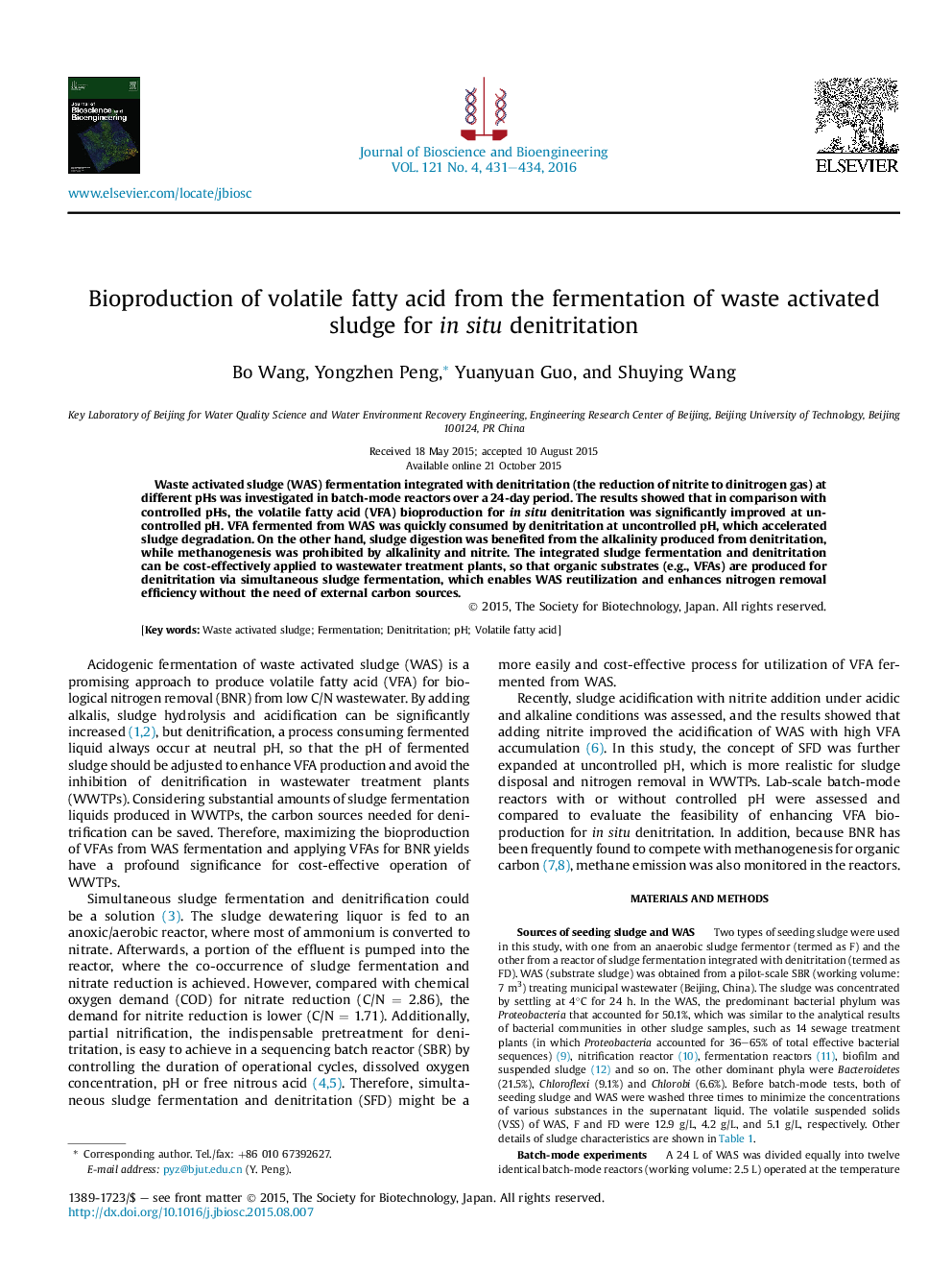| کد مقاله | کد نشریه | سال انتشار | مقاله انگلیسی | نسخه تمام متن |
|---|---|---|---|---|
| 20135 | 43159 | 2016 | 4 صفحه PDF | دانلود رایگان |
Waste activated sludge (WAS) fermentation integrated with denitritation (the reduction of nitrite to dinitrogen gas) at different pHs was investigated in batch-mode reactors over a 24-day period. The results showed that in comparison with controlled pHs, the volatile fatty acid (VFA) bioproduction for in situ denitritation was significantly improved at uncontrolled pH. VFA fermented from WAS was quickly consumed by denitritation at uncontrolled pH, which accelerated sludge degradation. On the other hand, sludge digestion was benefited from the alkalinity produced from denitritation, while methanogenesis was prohibited by alkalinity and nitrite. The integrated sludge fermentation and denitritation can be cost-effectively applied to wastewater treatment plants, so that organic substrates (e.g., VFAs) are produced for denitritation via simultaneous sludge fermentation, which enables WAS reutilization and enhances nitrogen removal efficiency without the need of external carbon sources.
Journal: Journal of Bioscience and Bioengineering - Volume 121, Issue 4, April 2016, Pages 431–434
